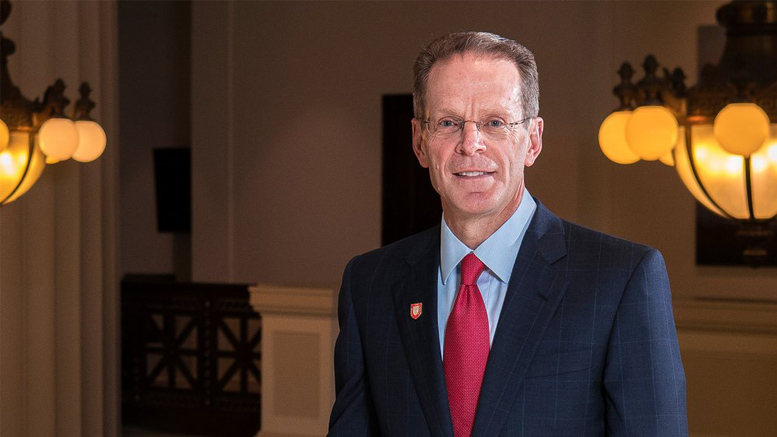By: Geoffrey S. Mearns, President, Ball State University—
Muncie, IN—Earlier this afternoon, I testified before the Indiana House Ways and Means Committee. At the hearing, Representative Tim Brown introduced proposed new legislation concerning the future of the Muncie Community Schools (“MCS”). Chairman Brown had conferred with me in the preparation of the proposed legislation, and he offered me the opportunity to share my perspective with the committee.
The proposed legislation provides that, on July 1, 2018, Ball State University may assume the responsibility of managing MCS. After consulting with our Board of Trustees and some members of our University community, I decided to support the proposed legislation because I believe that it presents an historic opportunity for our University and the community that we serve.
Our University is uniquely qualified to assume this important responsibility. We were founded 100 years ago as a Teachers College. Since our founding, we have been preparing outstanding teachers and innovative academic leaders. And for many years, our faculty, staff, and students have been deeply engaged in MCS programs—programs that are producing excellent results. If we are now able to expand existing programs and develop new ones with MCS, we will be able to share our successes with other Indiana educators and policy-makers, and our graduates will take the lessons that they have learned to school districts all across the state.
In addition to being consistent with our core mission as a public university, this potential new responsibility is consistent with our institutional interest. The future of Muncie is dependent on the quality of our public schools, and our University’s future is affected by the vitality and vibrancy of Muncie. In short, our fortunes are linked: as we improve educational outcomes for MCS students, we will be securing an even brighter future for our University.
As we prepare to celebrate our Centennial this year, we must also recognize that we are indebted to the generous people of Muncie who founded this institution. Our neighbors have nurtured and fostered our growth and ascendancy over the past 100 years. Now we are being presented with an extraordinary opportunity to demonstrate our profound gratitude in a transformative way. And it arises at the right time—just as we are beginning the process that will produce a bold, ambitious vision for the future of our University.
I believe that this opportunity will enable us to mobilize our faculty, staff, and students all across campus in new and innovative ways. And our leadership and extensive engagement will inspire people from other institutions and organizations to partner with us to provide an exceptional educational experience for the children of Muncie.
Indeed, for us to be successful, we must engage the entire community—the MCS teachers, students, and families, and every member of the community who wants to partner with us. This effort must be a collective one—to show that we are truly “Better Together.”
Our initial goal will be to stem the decline in student enrollment in MCS, and then eventually to increase enrollment. We will achieve these objectives by offering innovative academic programs and comprehensive support services. We want every child to succeed, and we want every parent in the Muncie area to know about our commitment. While we must initially focus on MCS finances, we won’t settle for financial solvency. Our goal is for MCS to thrive, not merely survive.
Three final observations.
I suspect that you may have some questions. For example, you may want to know whether we intend to use our University’s financial resources to subsidize the operations of MCS. The simple answer to that question is no, we will not use our students’ tuition and the state funding that we receive to support MCS. In fact, the wisdom of the proposed legislation is that it preserves the financial and legal independence of our University and MCS.
You may have other questions, but I may not be able to answer all of them yet. This concept is a new one, and the situation is dynamic and rapidly evolving. As the legislative process unfolds, I will share more information with you. And if this legislative proposal is enacted, I will enlist your support, your creative ideas, and your active participation.
I believe that we should assume this responsibility because it is an exceptional opportunity for us to demonstrate once again that, at Ball State, we transform lives through education and service. I am confident that we can succeed, but I appreciate that this opportunity is a significant challenge, and it requires a long-term commitment. The work won’t be easy, and there will inevitably be some difficult decisions. But this endeavor is an honorable one. It is our duty to assume this responsibility. The children of MCS are our children. And like every child, they deserve a great education.”




